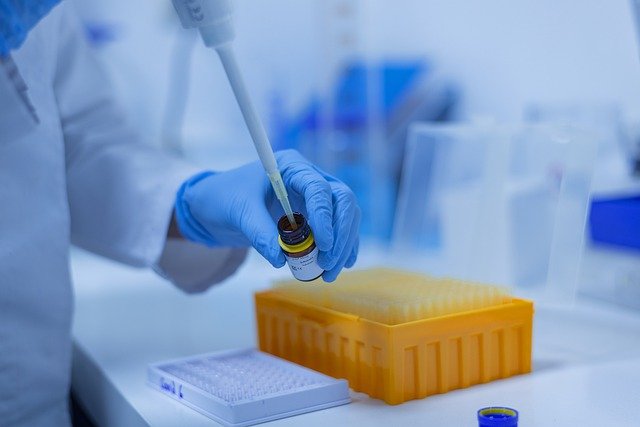Challenges and Higher Standards Confronting CAR-T Therapy
- Normal Liver Cells Found to Promote Cancer Metastasis to the Liver
- Nearly 80% Complete Remission: Breakthrough in ADC Anti-Tumor Treatment
- Vaccination Against Common Diseases May Prevent Dementia!
- New Alzheimer’s Disease (AD) Diagnosis and Staging Criteria
- Breakthrough in Alzheimer’s Disease: New Nasal Spray Halts Cognitive Decline by Targeting Toxic Protein
- Can the Tap Water at the Paris Olympics be Drunk Directly?
Challenges and Higher Standards Confronting CAR-T Therapy: Complex Manufacturing and Elevated Criteria
- Should China be held legally responsible for the US’s $18 trillion COVID losses?
- CT Radiation Exposure Linked to Blood Cancer in Children and Adolescents
- FDA has mandated a top-level black box warning for all marketed CAR-T therapies
- Can people with high blood pressure eat peanuts?
- What is the difference between dopamine and dobutamine?
- How long can the patient live after heart stent surgery?
Challenges and Higher Standards Confronting CAR-T Therapy: Complex Manufacturing and Elevated Criteria
Once hailed as a “miracle cure” in the fight against cancer, CAR-T therapy is now facing a critical juncture marked by intricate manufacturing processes and heightened standards.
Despite its innovative potential, this therapy, which has been in existence for just seven years, has encountered a series of setbacks in recent weeks, leaving many companies grappling with difficulties and uncertainties.

1. Arduous Manufacturing of CAR-T Therapy
When it comes to cell therapy manufacturing, insiders often emphasize the phrase “process is the product,” succinctly capturing the manufacturing challenges inherent in the development of cell therapies. Recently, Koji Pharmaceuticals, a prominent player in the CAR-T field, faced a setback in the United States.
On December 12, Koji Pharmaceuticals announced that its U.S. subsidiary, CARsgen, received a notice from the FDA to halt clinical trials of three CAR-T drugs—CT053, CT041, and CT071. The pause was mandated to allow inspection of the production facility in North Carolina. Consequently, Koji Pharmaceuticals experienced a sharp 30.4% decline in its stock price on December 13.
During a conference call, Koji Pharmaceuticals clarified that the FDA’s concerns were related to residual issues in employee training, rather than fundamental process flaws. In essence, the FDA pressed the pause button on Koji Pharmaceuticals’ CAR-T product development due to CMC (Chemistry, Manufacturing, and Controls) issues, a challenge unique to the novel nature of CAR-T therapy.
This CMC hurdle is not exclusive to Koji Pharmaceuticals; other major players such as Novartis and Bluebird Bio faced similar challenges. In October 2022, the FDA highlighted significant production problems with Novartis’ Kymriah CAR-T therapy, involving contamination by foreign particles like wood, cellulose, brass, and steel. The FDA also pointed out potential microbial contamination issues. Similarly, Bluebird Bio experienced delays in FDA approval in May 2020 due to CMC concerns.
In the last two years, the FDA has suspended 33 cell and gene therapy clinical trials, with 21% of them attributed to CMC issues. As regulatory experience accumulates, CAR-T companies must not overlook CMC concerns in their development processes.
2. Elevated Standards from the FDA
The challenges for CAR-T therapy extend beyond manufacturing issues. In November, the therapy faced scrutiny based on Overall Survival (OS) data. Traditionally, the FDA primarily focused on Progression-Free Survival (PFS) or Objective Response Rate (ORR) endpoints for CAR-T therapy approvals. However, the FDA’s decision to delay Abecma’s supplemental application for multiple myeloma treatment suggests a shift towards requiring more OS data.
The FDA’s demand for OS data signifies a departure from the past, where PFS or ORR data sufficed for CAR-T therapy approvals. This shift may be attributed to a growing skepticism about the reliability of PFS or ORR as surrogate endpoints.
Furthermore, the safety of CAR-T therapy has come under question. On November 28, the FDA announced an investigation into whether certain CAR-T therapies might, in rare instances, lead to malignant T-cell tumors. Despite the uncertainty surrounding the carcinogenic concerns, the FDA has urged vigilance for all marketed CAR-T therapies.
This heightened scrutiny from the FDA introduces additional complexities and potentially extended timelines and costs for CAR-T companies in their clinical trials.
3. Inevitable Challenges in the Development of New Technologies
The challenges in CAR-T therapy, from manufacturing intricacies to increased FDA standards, present unprecedented obstacles. However, there is room for optimism.
While CAR-T therapy is not a perfect “miracle cure” and faces safety risks, it remains a young field with significant potential for improvement. Since the FDA approved the first CAR-T therapy in 2017, the therapy has yet to reach its tenth anniversary. The development of new technologies and therapies is an iterative process marked by gradual progress and occasional setbacks.
Amid these challenges, pharmaceutical companies are actively seeking solutions. For instance, Roche is exploring alternatives to address safety concerns related to the viral vectors used in CAR-T therapy production.
Despite the recent turbulence, it’s essential to view these events as part of the natural evolution of a young and innovative field. Instead of outright dismissal, a cautious approach is needed, acknowledging the need for continued research, improvements, and time for the maturation of CAR-T therapy.
In conclusion, while the current challenges and setbacks may cause concern, they are unlikely to derail the overall trajectory of CAR-T therapy development. Each discovery and obstacle serves as a learning opportunity, prompting a more careful evaluation rather than outright rejection of CAR-T therapy. For this young therapy, granting it more time for refinement and progress seems prudent.
Challenges and Higher Standards Confronting CAR-T Therapy: Complex Manufacturing and Elevated Criteria
(source:internet, reference only)
Disclaimer of medicaltrend.org
Important Note: The information provided is for informational purposes only and should not be considered as medical advice.



